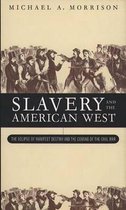Paradox of Southern Progressivism, 1880-1930
Afbeeldingen
Sla de afbeeldingen overArtikel vergelijken
Auteur:
William A. Link
- Engels
- Paperback
- 9780807845899
- 28 februari 1997
- 464 pagina's
Samenvatting
Based on archival research, this text reinterprets the origins and impact of progressivism in the South. It shows that a fundamental clash of values divided reformers and rural Southerners, ultimately blocking the reforms.
Focusing on the cultural conflicts between social reformers and southern communities, William Link presents an important reinterpretation of the origins and impact of progressivism in the South. He shows that a fundamental clash of values divided reformers and rural southerners, ultimately blocking the reforms. His book, based on extensive archival research, adds a new dimension to the study of American reform movements. The new group of social reformers that emerged near the end of the nineteenth century believed that the South, an underdeveloped and politically fragile region, was in the midst of a social crisis. They recognized the environmental causes of social problems and pushed for interventionist solutions. As a consensus grew about southern social problems in the early 1900s, reformers adopted new methods to win the support of reluctant or indifferent southerners. By the beginning of World War I, their public crusades on prohibition, health, schools, woman suffrage, and child labor had led to some new social policies and the beginnings of a bureaucratic structure. By the late 1920s, however, social reform and southern progressivism remained largely frustrated. Link's analysis of the response of rural southern communities to reform efforts establishes a new social context for southern progressivism. He argues that the movement failed because a cultural chasm divided the reformers and the communities they sought to transform. Reformers were paternalistic. They believed that the new policies should properly be administered from above, and they were not hesitant to impose their own solutions. They also viewed different cultures and races as inferior. Rural southerners saw their communities and customs quite differently. For most, local control and personal liberty were watchwords. They had long deflected attempts of southern outsiders to control their affairs, and they opposed the paternalistic reforms of the Progressive Era with equal determination. Throughout the 1920s they made effective implementation of policy changes difficult if not impossible. In a small-scale war, rural folk forced the reformers to confront the integrity of the communities they sought to change.
Focusing on the cultural conflicts between social reformers and southern communities, Link reinterprets the origins and impact of southern progressivism. He shows that a fundamental clash of values divided reformers and rural southerners, ultimately blocking reforms. In a small-scale war between 1880 and 1930, reformers were forced to confront the integrity of the communities they sought to change.
Focusing on the cultural conflicts between social reformers and southern communities, William Link presents an important reinterpretation of the origins and impact of progressivism in the South. He shows that a fundamental clash of values divided reformers and rural southerners, ultimately blocking the reforms. His book, based on extensive archival research, adds a new dimension to the study of American reform movements. The new group of social reformers that emerged near the end of the nineteenth century believed that the South, an underdeveloped and politically fragile region, was in the midst of a social crisis. They recognized the environmental causes of social problems and pushed for interventionist solutions. As a consensus grew about southern social problems in the early 1900s, reformers adopted new methods to win the support of reluctant or indifferent southerners. By the beginning of World War I, their public crusades on prohibition, health, schools, woman suffrage, and child labor had led to some new social policies and the beginnings of a bureaucratic structure. By the late 1920s, however, social reform and southern progressivism remained largely frustrated. Link's analysis of the response of rural southern communities to reform efforts establishes a new social context for southern progressivism. He argues that the movement failed because a cultural chasm divided the reformers and the communities they sought to transform. Reformers were paternalistic. They believed that the new policies should properly be administered from above, and they were not hesitant to impose their own solutions. They also viewed different cultures and races as inferior. Rural southerners saw their communities and customs quite differently. For most, local control and personal liberty were watchwords. They had long deflected attempts of southern outsiders to control their affairs, and they opposed the paternalistic reforms of the Progressive Era with equal determination. Throughout the 1920s they made effective implementation of policy changes difficult if not impossible. In a small-scale war, rural folk forced the reformers to confront the integrity of the communities they sought to change.
Focusing on the cultural conflicts between social reformers and southern communities, Link reinterprets the origins and impact of southern progressivism. He shows that a fundamental clash of values divided reformers and rural southerners, ultimately blocking reforms. In a small-scale war between 1880 and 1930, reformers were forced to confront the integrity of the communities they sought to change.
Productspecificaties
Wij vonden geen specificaties voor jouw zoekopdracht '{SEARCH}'.
Inhoud
- Taal
- en
- Bindwijze
- Paperback
- Oorspronkelijke releasedatum
- 28 februari 1997
- Aantal pagina's
- 464
- Illustraties
- Nee
Betrokkenen
- Hoofdauteur
- William A. Link
- Hoofduitgeverij
- The University Of North Carolina Press
Overige kenmerken
- Editie
- New edition
- Extra groot lettertype
- Nee
- Product breedte
- 165 mm
- Product hoogte
- 32 mm
- Product lengte
- 241 mm
- Studieboek
- Nee
- Verpakking breedte
- 165 mm
- Verpakking hoogte
- 32 mm
- Verpakking lengte
- 241 mm
- Verpakkingsgewicht
- 703 g
EAN
- EAN
- 9780807845899
Je vindt dit artikel in
- Categorieën
- Taal
- Engels
- Boek, ebook of luisterboek?
- Boek
- Periode
- ca. 1500-1800, ca. 1800-1910
- Land
- Verenigde Staten
Kies gewenste uitvoering
Kies je bindwijze
(3)
Prijsinformatie en bestellen
De prijs van dit product is 46 euro en 66 cent. Dit is een tweedehands product.Alleen tweedehands
Goed
Uiterlijk 14 juni in huis
Verkoop door
Bogamo 13 - Boeken outlet
- Bestellen en betalen via bol
- Prijs inclusief verzendkosten, verstuurd door Bogamo 13 - Boeken outlet
- 30 dagen bedenktijd en gratis retourneren
Rapporteer dit artikel
Je wilt melding doen van illegale inhoud over dit artikel:
- Ik wil melding doen als klant
- Ik wil melding doen als autoriteit of trusted flagger
- Ik wil melding doen als partner
- Ik wil melding doen als merkhouder
Geen klant, autoriteit, trusted flagger, merkhouder of partner? Gebruik dan onderstaande link om melding te doen.








